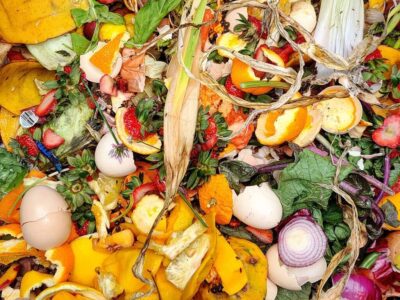By Kristina Alnes

Even in our attempts to be conscious consumers, we waste food for a variety of reasons that are typically related to issues of timing and perishability. Those few tomatoes or half-loaf of bread may not seem like much in one household’s trash, but they add up in a city like New York. With world demographic trends pointing to a future with more single-person households and increasing urbanization, urban food waste is a prime target for a creative new social movement.
To address this, M.S. in Sustainability Management students Jessica Wu, Adam Gordon and I, along with School of Visual Arts student Josh Treuhaft, have teamed up to create re:HARVEST, a food-sharing website and companion mobile application allowing users to notify each other when they have food available for pickup that would otherwise be wasted. The crucial aspects of the application itself are simplicity, ease of use, and flexibility to search both by location and by type of food item. It will include estimated expiration dates and geo-tagged maps, making coordination a snap. The team’s goal is to create a system to redistribute surplus food within communities that is localized and replicable so that communities can be more ‘food-efficient’ and allow existing resources to go where they are needed most.
The team is not new to the issue of food waste, having varied experience in the realm of food system sustainability under their belts. Prior to joining the MSSM program, Adam Gordon cofounded NYCOMPOST, a bicycle composting service. All three of us in the MSSM program have also previously worked with sustainable agriculture initiatives. The food waste problem has significant bearing on debates regarding ecologically sensitive methods of production and distribution, world hunger and solid waste management.
Websites based on the “sharing economy” such as ZipCar, AirBnB and CouchSurfing have demonstrated that web apps can reform the allocation of resources to reduce environmental impacts. In a similar vein, re:HARVEST is creating a “sharing-economy” platform to address food waste.
The idea was pitched to the Thought for Food Challenge, an annual competition where university students are challenged to develop “the next big idea” in food security. Although the team did not win seed money from Thought for Food, they will be reconvening to evaluate other ways to further the concept.
Read more about re:HARVEST on the Thought for Food Competition page or on the re:HARVEST Facebook page.
Kristina Alnes is a student in the Earth Institute’s M.S. in Sustainability Management program.
1 2013. Institute of Mechanical Engineers: Global Food: Waste Not, Want Not. Available from http://www.imeche.org/knowledge/themes/environment/global-food



